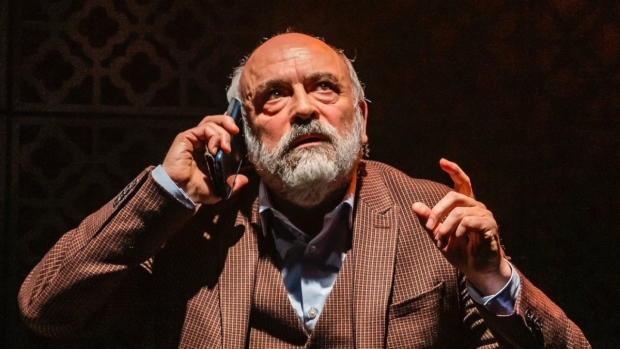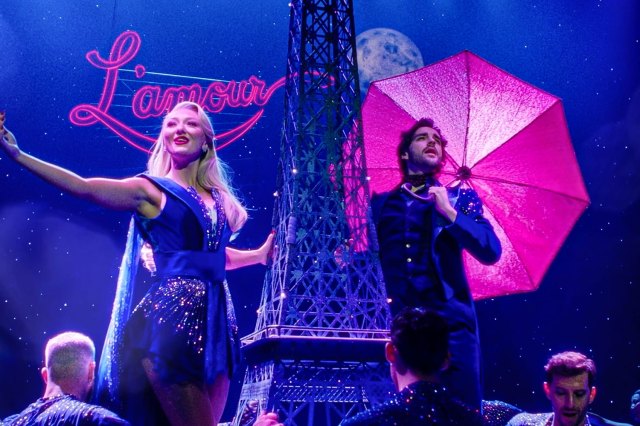A reinvented Merchant: 'Shakespeare's been dead for 400 years – we can do what the hell we like'
Performer Peter Tate explains how it’s been in this new twist on Shakespeare’s text

© Guy Bell
Peter Tate, co-artistic director of the Playground Theatre, is currently taking on one of the biggest parts in Shakespeare's canon – Shylock. Playing the role in a six-person re-adaptation of The Merchant of Venice at the Playground Theatre, a couple of weeks ago we sat down with Tate to talk all things Merchant and how his upbringing has filtered into his work.
Can you talk about how themes of racism and antisemitism filter into this production?
This is a Merchant that we've placed in a post-Holocaust world where it's impossible to deny racism of all kinds exists. My father was a victim of racism when he came to this country many years ago and I've been living around these themes of racism – I've seen a man's life destroyed by it.
Seeing the ugliness of it, I ask myself: what is it based on? It's not based on the individual in front of you, it's based on some collective psyche that puts others down to make you feel better. There is something missing in racist individuals.
Shakespeare has penned a play that really can be a knotty watch for audiences.
When you first read Merchant, you can read it as anti-semitic – there was a reason it was one of Hitler's favourite plays. Of course, the play would have been slanted against the figure of "the Jew". As we delve further into it, we see a man that has also been destroyed – he's treated abominably just because of his faith: he has his daughter stolen away from him. In that vein I can see his need to want to get something back, even if it's something as extreme as a pound of flesh.
How has it been adapting it for a smaller cast?
The text isn't overly familiar to me (though it's Bill Alexander's fifth time around!). Here we've got six characters – Bill has concentrated the essence of the play. We've retained Shakespeare's words with the occasional inflection (though since he's been dead for 400 years we can do what the hell we like). When Bill first asked me I was terrified and excited, and I thought that heady mix was perfect.
But a lot of this comes back to your father?
I was interested to see if any of my father's experiences had filtered through me into playing Shylock. The challenge and the experience with my father – having been around racism within my family (my father was Greek Cypriot and my mother was English), meant that I've come to recognise that my English grandparents were racists, in effect. I'm not sure how far that filtration has seeped into this performance, but whenever someone is pushed to the fringes, I want to explore that.
At the end of the play Shylock is given a lifeline to convert. The people that do this to him are actually horrible – it made me think – are audiences truly meant to root for Antonio?












